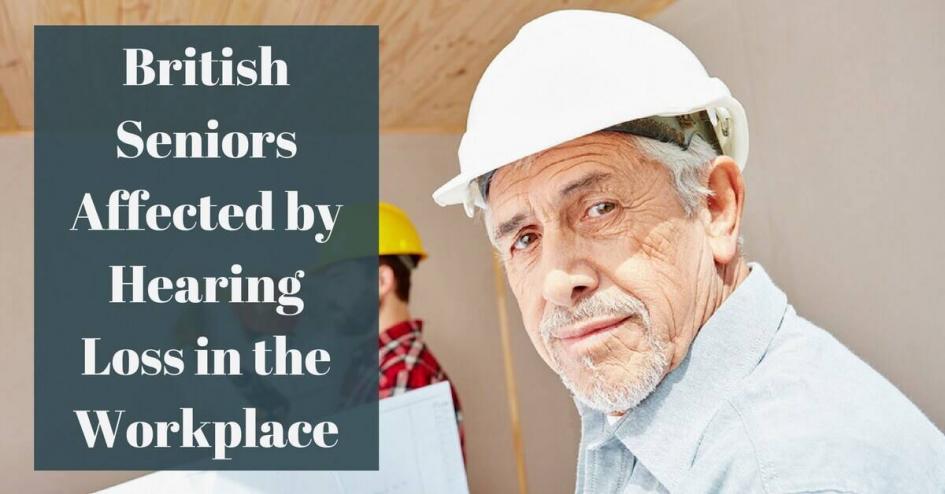
Many British seniors affected by hearing loss in the workplace
Jan 08, 2018
According to the NHS, the 71% of people aged above 70 had some kind of hearing loss, with 44% of them struggling with hearing loss that is moderate or worse. Armed with this fact, it is perhaps not surprising that many people in employment who are aged 55 share concerns which hint that they are moving towards the same fate.
The marketing company OnePoll who surveyed 800 working adults aged over 55 or above to find out what the impact was of hearing loss while employed.
Here is what they found:
- Six out of ten surveyed have seen their hearing decline, which is affecting their ability to excel in their role.
- Four out of ten surveyed have felt their confidence drop due to their hearing problems. They also felt isolated from their colleagues as a result of their condition.
- More than half of respondents noticed they were losing their hearing from having to ask colleagues to repeat themselves.
- Nearly half also avoided using the telephone.
- A third tried to get out of meetings, as they were unable to follow the conversations.
- A quarter declined socializing with colleagues, as they were worried that their secret might be revealed.
- For half of the respondents, noisy working environments and colleagues who didn’t communicate clearly were the two most demanding situations.
Implications
During meetings, presentations and networking events (where communication is paramount) being hearing impaired can affect an employee’s effectiveness in their role if the work environment is not set up to best prepare them for success. Employers with hearing loss also might also respond emotionally. Feelings of isolation and loss of self-esteem are not uncommon. They may feel like they are missing out on jokes and banter being thrown around the office. This impacts negatively on morale and may cause the sufferer to rethink employment itself. Around 41% of people with hearing loss retire early because of being hamstrung by hearing loss. When people decide that they don’t want to work with hearing loss anymore. This stops them from fulfilling their potential. The experience and skills of somebody in their mid-50s will be lost to the company, which could negatively influence its productivity and competitiveness. The company would then be forced to divert money and time on recruiting and training new members of staff The UK economy will also be impacted. The latest numbers show that the economy loses 25 billion pounds a year due to lost productivity and unemployment from the effects of hearing loss on employees.What people in this situation can do
If you are reading this and can relate to the concerns of the poll respondents, you might be wondering if there is anything you can do today to alleviate your concerns and maintain your performance at work. Fortunately, there is. Those with significant hearing loss can get a hearing aid for free from the NHS. You will also receive domes, tubing and batteries without having to pay. At House of Hearing, our team will provide tests to determine the type of device you will need. There are many benefits to using a hearing aid in the workplace. A recent study in the US found that those with severe hearing loss made on average $30,000 less that those with normal hearing. Users of hearing aids in the workplace also report increased confidence, productivity and improved social interaction with their peers.What employers can do
There are also several things that can be done on the employer side to create conditions which help those affected maximize their productivity and confidence. The first and most important is a change in attitude towards those with hearing loss. To see them as potential to be unlocked rather than somebody who is more trouble than they are worth. Under the Equality Act 2010, employers have a duty to make reasonable changes to the workplace, which for disabled employees. This could include:- Using good lighting and layout to enable the hard of hearing to be able to see everyone clearly. This also aids with lip-reading.
- Helping with communication support during meetings, for example by using speech to text apps.
- Installing helpful technology like amplified telephones, flashing fire alarms and maybe even a loop system.
- Giving employees reasonable time off for audiology appointments.
Visit Us at House of Hearing
Are you concerned about how hearing loss may affect your performance on the job? Visit us at House of Hearing for a consultation and hearing test today.Our Clinics
All House of Hearing clinics are in town centre locations and accessible to public transport and parking. Home visits also available if mobility is an issue.


.png)
.png)
.png)

.png)
